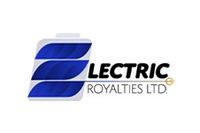Glencore’s Cobalt Production Up in 2019, Guidance Down for 2020
The increase in Glencore’s 2019 production was primarily due to Katanga’s ramp up, and came despite Mutanda’s early closure.
Mining giant Glencore’s (LSE:GLEN,OTC Pink:GLCNF) total cobalt production reached 46,300 metric tons in 2019 — 10 percent higher year-on-year, the company reported on Tuesday (February 4).
The top producer’s cobalt output comes primarily from its Katanga and Mutanda mines in the Democratic Republic of Congo (DRC) and from its nickel mines in Australia and Canada, where it produces cobalt as a by-product.
The increase in 2019 production was primarily due to Katanga’s ramp up, and came despite Mutanda’s early closure. Last November, Mutanda, the world’s largest cobalt mine, was shut down due to declining cobalt prices and higher taxes.
The closure was felt in Glencore’s fourth quarter production results, which saw cobalt output fall 13 percent year-on-year to 11,900 metric tons.
Looking ahead, the diversified miner has cut its 2020 cobalt guidance to 29,000 metric tons — almost 40 percent less than what it actually produced in 2019.
Additionally, Glencore, which has been battling issues in the DRC and Zambia, has appointed Kalidas Madhavpeddi, the former CEO of China Molybdenum International, as a non-executive director. China Molybdenum (OTC Pink:CMCLF,HKEX:3993) is the majority owner of the Tenke Fungurume mine, one of the world’s largest cobalt mines, which is also in DRC.
Most of the world’s cobalt is mined in the DRC, but concerns over responsible sourcing of the battery metal continue to reign in the space, as mining in the African country has often been linked to child labor and human rights abuses.
That said, demand for Glencore’s production has been on the rise as more and more car and battery makers are racing to secure long-term supplies of the metal.
In 2019, the Swiss company inked a deal with German automaker BMW (OTC Pink:BYMOF,ETR:BMW) to supply cobalt from its Murrin Murrin mine in Australia.
It also signed deals with Belgium-based Umicore (OTC Pink:UMICF,EBR:UMI), Europe’s largest producer of battery materials for the electric vehicle industry; Chinese battery materials maker GEM (SZSE:002340); and Korean battery maker SK Innovation (KRX:096770).
Moreover, earlier this year, reports came out that Elon Musk’s Tesla (NASDAQ:TSLA) is in talks to sign a long-term cobalt deal with the major miner for its new factory in Shanghai.
Although Glencore’s cobalt output was up 10 percent, its copper production fell 6 percent. However, the market perceived the results positively, with shares of the company increasing by more than 5 percent on Tuesday to close at GBX 232.97.
Don’t forget to follow us @INN_Resource for real-time updates!
Securities Disclosure: I, Priscila Barrera, hold no direct investment interest in any company mentioned in this article.

